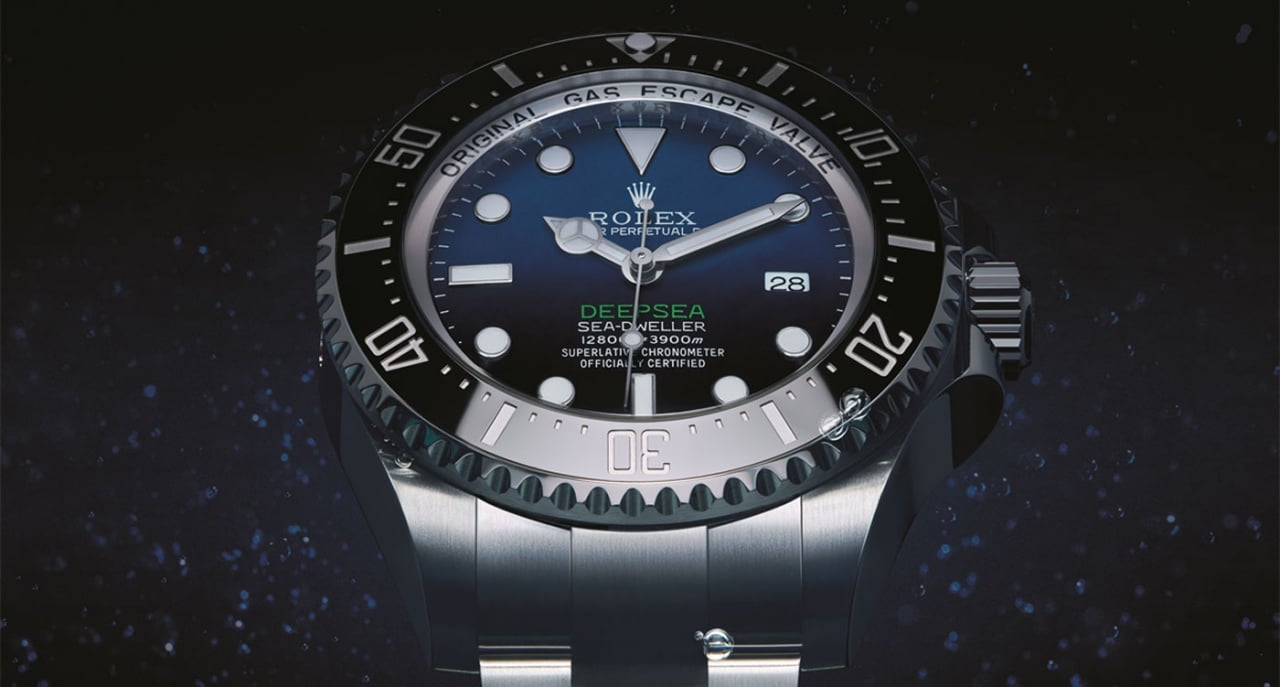We communicate with satellites deep in space via huge antennae, and send probes on journeys lasting decades to explore distant galaxies. But there’s somewhere much closer to home that is seemingly less understood, despite being light years nearer – the deep sea. Dark and inhospitable, the Mariana Trench runs through the Western Pacific Ocean, its lowest point some 11,000 metres below the water's surface. In 2012, James Cameron, aboard an ultra-modern dive boat, successfully made the arduous journey to the bottom.
A dive-like dial

The ‘Titanic’ director’s descent was heavily supported by Rolex and now, two years later, the legendary watch manufacturer has introduced the Deepsea, a variant of the Sea-Dweller dedicated to Cameron and his entrepreneurial spirit. Its most striking feature is the new two-tone gradient dial, ranging from bright blue to an unfathomable black, reminiscent of a deep-sea dive. In a neon font, the Deepsea emblem can be seen emblazoned on the face. We can only speculate as to what nickname the community of Rolex collectors will give to this new model.
Although the Deepsea will rarely take the plunge, there are features and innovations that are very useful to a diver. These include further developed ‘Chromalight’ luminous markers, ensuring maximum readability at any depth, and Rolex’s patented ‘Glidelock’ system, which allows the bracelet to extend to fit easily over a diving suit.
A wrist-mounted decompression chamber
The most important feature of a diver’s watch is, of course, the waterproofing and pressure management. Thanks to a helium safety valve (patented by Rolex in 1967) serving as a miniature decompression chamber, the latter is controlled by manually allowing the trapped helium to escape, preventing any pressure damage to the movement. The new Rolex Deepsea is resistant to 3,900 metres below sea level and is essentially the ultimate Oyster.





